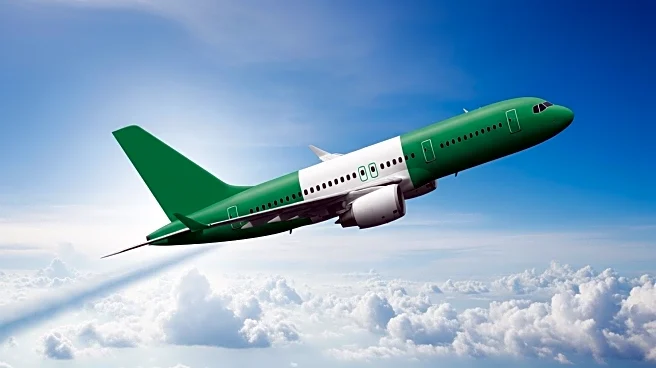What's Happening?
United Nigeria Airlines is set to expand its fleet by acquiring up to 10 Boeing 737-800 aircraft previously operated by Southwest Airlines. The initial agreement includes six aircraft, with the potential to add four more. This acquisition is facilitated through a partnership with SkyWorks Holdings. The airline, which has traditionally operated Embraer ERJ regional jets, aims to enhance its operational capacity and profitability by integrating these larger aircraft. Executive Chair Obiora Okonkwo stated that the new fleet will allow United Nigeria to offer more competitive fares and efficient point-to-point travel, reducing the need for stopovers. The integration of these aircraft is expected to occur over the next year, starting in the first quarter of 2026. Boeing is providing strong support to ensure a smooth transition, aligning with United Nigeria's maintenance culture.
Why It's Important?
This acquisition marks a significant step for United Nigeria Airlines in expanding its market presence and operational capabilities. By incorporating larger aircraft, the airline can increase passenger and cargo capacity, potentially leading to increased revenue and market share. The move also reflects a growing trend in the African aviation market, where airlines are seeking to modernize and expand their fleets to meet rising demand. The collaboration with Boeing and Southwest Airlines highlights the importance of international partnerships in enhancing operational efficiency and technical expertise. This development could influence other African carriers to pursue similar strategies, potentially reshaping the regional aviation landscape.
What's Next?
United Nigeria Airlines plans to integrate the new aircraft into its operations over the next year, with the first deliveries expected in early 2026. The airline will likely focus on expanding its route network, both domestically and internationally, to capitalize on the increased capacity. Continued collaboration with Boeing and Southwest Airlines in areas such as training and maintenance support will be crucial for a successful transition. The broader African aviation market may observe this development closely, potentially leading to further fleet expansions and partnerships across the continent.










